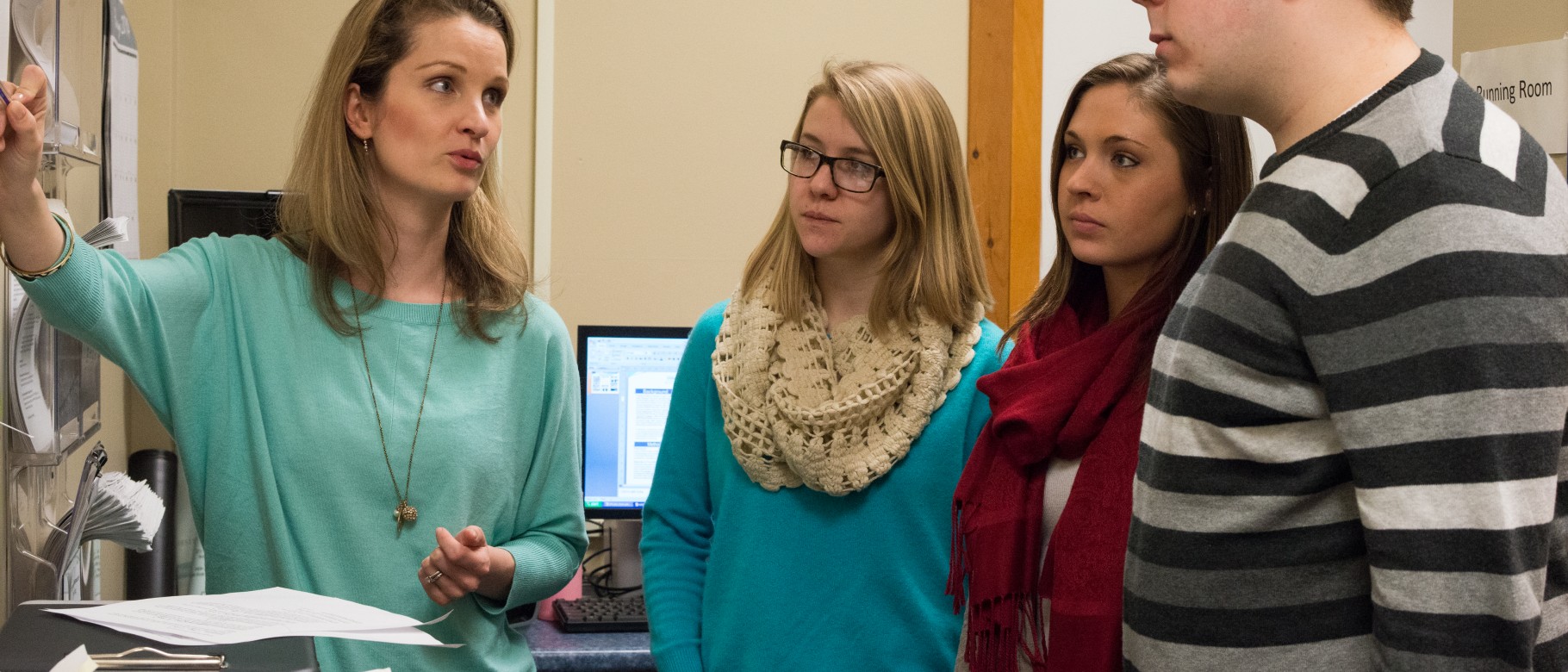Jennifer Stiegler-Balfour presents two research studies at the annual American Psychological Association Convention

Jennifer Stiegler-Balfour, Ph.D., associate professor in the Department of Psychology, recently presented findings from two research projects at the American Psychological Association (APA) Convention in San Francisco. The APA Convention is the largest annual gathering of psychology professionals.
The first of Stiegler-Balfour’s presentations, “Comprehending Text on a Kindle Depends on Text Type and Reading Skill”, featured a UNE undergraduate student co-author, Ellie Leighton (Psychology, ’19). The study examined whether or not individuals comprehend and learn differently on a digital e-reader (e.g. Kindle) compared to traditional printed text when presented with text written for learning (e.g. textbook material) versus text written for leisure (e.g., novel).
The research results showed that in order to maintain a high-level of comprehension, readers had to slow down when reading on a Kindle, especially when reading expository text. If readers failed to adjust their reading pace, comprehension suffered.
Overall, the results suggest that reading on digital mediums such as Kindles is comparable to reading traditional print text; however, the results also indicate that reading on a Kindle is less efficient than reading on paper because it takes longer to read and comprehend (25-30 percent time increase), and some readers may have difficulty recognizing when a change in reading pace is required to maintain comprehension.
Stiegler-Balfour’s second presentation was co-authored with Krisztina Jakobsen and David Daniel from James Madison University and Michael Stroud from Merrimack College. The study, which is titled “APA-Style Citations Create a Roadblock for Less-Skilled Readers,” examined the effect of in-text APA citations on reading comprehension measures as a function of structure building ability.
For this study participants were asked to read expository text, with or without APA parenthetical citations, followed by a comprehension quiz about the passage. Participants also completed the Multi-media Comprehension Battery (MMCB) in order to determine their structure building ability.
The results showed that less-skilled structure builders performed significantly lower on a comprehension quiz in the APA citation compared to the no citation condition. They also spent less time reading in the APA citation compared to the no citation condition. In contrast, the results revealed that skilled structure builders performed equally well on the comprehension quiz but had to reduce their reading speed to maintain high levels of comprehension in the APA citation condition.
The results challenge the utility of APA-style in-text citations in textbooks targeted at general populations of students and, more importantly, moderate-to-poor readers.
